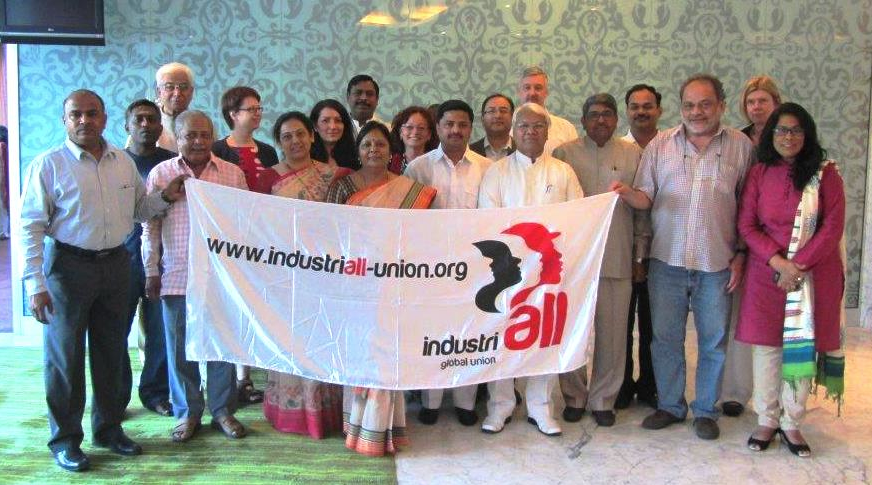24 March, 2014On 20-21 March, the first Project advisory committee meeting on the new project phase of ‘Organizing Workers in the Steel, Mining & Energy Sectors in India, 2014-2016 “was held in New Delhi, India.
For the first time trade union leadership from three major economic sectors, steel, mining and energy, came together to deliberate on how to implement cross-sector organising in five states in India. Leaders from four major federations affiliated to IndustriALL, the Indian National Metalworkers’ Federation (INMF); the Indian National Mine Workers’ Federation (INMF-Mines); the Steel Metal & Engineering Workers Federation of India (SMEFI) and the Hind Khadan Mazdoor Federation (HKMF) participated. Swedish affiliates IF Metall and Unionen and Finnish affiliates Metalliitto and PRO all support the project and participated. The SASK regional coordinator and representatives from IndustriAll head and regional office were also present.
In his inaugural address, Fernando Lopes, IndustriALL assistant general secretary, outlined the Action Plan and Strategic goals of IndustriALL, stating that it is imperative for IndustriAll to strengthen these three key sectors in India in order to build union power at a national, regional and global level.
Sudhershan Rao Sarde IndustriALL’s regional secretary, presented a brief overview of the vast challenges of implementing such a programme for 2014-2016, emphasising the promotion of cross sectoral unity and cooperation to build a truly sustainable union movement in the three sectors.
Suzanna Miller, IndustriALL projects and rights officer, together with K C Sharan, SASK regional coordinator, stressed that the industrial membership is growing and an estimated 40,000 members were organised during the previous steel project. Now there is a need to link the unions in India to IndustriALL affiliates from the same sectors worldwide. Sharan underlined that the project reports should reflect the enormous amount of work carried out each year and the positive impact the project activities has on the national trade union movement.
The union leadership agreed that one of the major impacts of the previous India steel project was to bring to the same table unions from INTUC and HMS to work together. This has in its turn generated major political alliances and since 2011, joint industrial action and rallies in India.
The participants were very interested to hear about the innovative and very successful experiences of organising white collar workers in Sweden, presented by Berivan Öngörur, Unionen International Secretary. Prabhu Rajendran, FNV regional coordinator, talked about organisational capacity assessment, planning, monitoring and evaluation.
Focusing on the upcoming implementation of the new project, the IndustriALL regional office staff provided interesting insights regarding the training needs of affiliates, the will to integrate women workers in all training activities, as well as the challenge of building effective solidarity and support for displaced populations.
Fernando Lopes concluded:
It is important that our training programmes now need to focus on transforming the trade union structures in order to respond adequately and creatively to the huge challenges worldwide in the sectors involved. We cannot be satisfied to reproduce structures which do not empower unions to take a leading role in shaping the industrial policy in India. The challenges in the mining, steel and energy sectors are daunting, but by working closely together strong national unions can jointly confront them.
Several recommendations were made for the next National Project Committee to consider when drawing up the calendar of activities for 2014, namely the training on gender awareness for the state coordinators, the coordination structure needed for effective implementation and the streamlining of subscription dues payment for improved sustainability of the affiliates.



